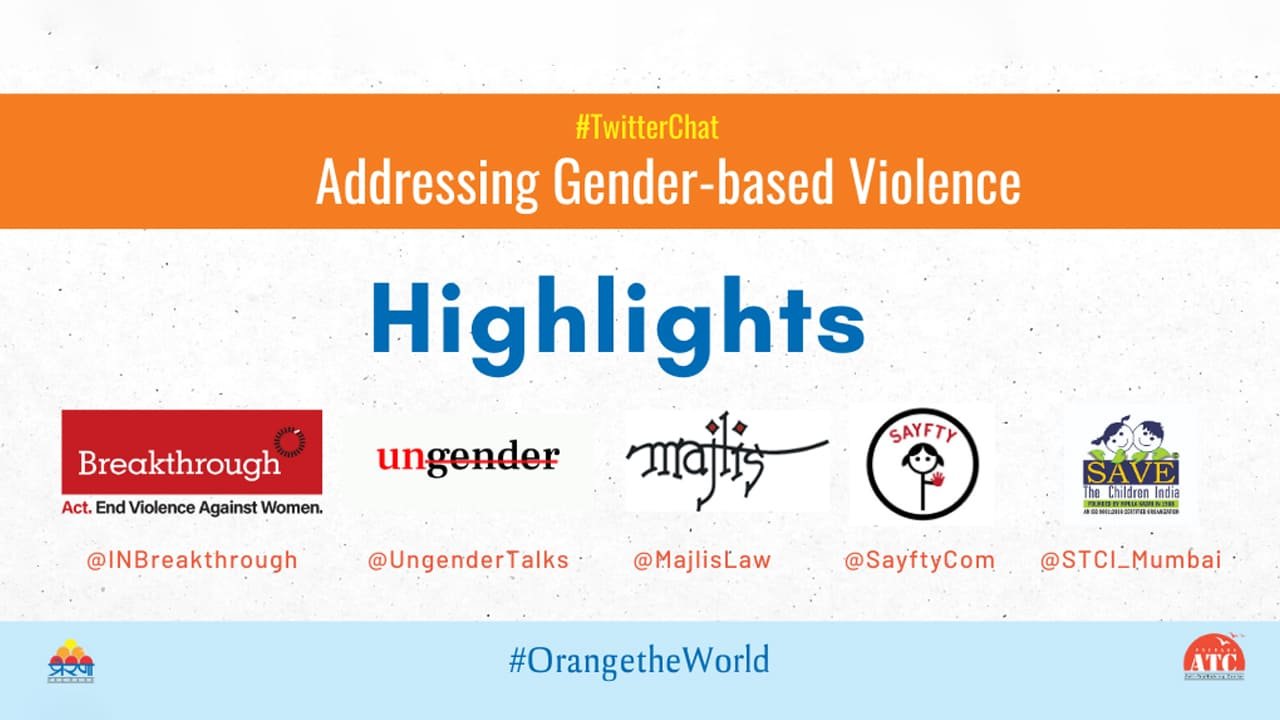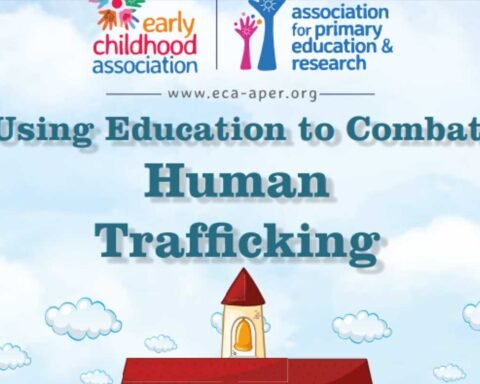Azra Qaisar
Documentation and Communications Manager (ATC)
16 Days of Activism against Gender-Based Violence is an annual international campaign that runs from 25th November, the International Day for the Elimination of Violence against Women, till 10 December, Human Rights Day.
On the 10th of December, we concluded our campaign on 16 Days of Activism with a Twitter Chat on “Addressing Gender-based Violence” with partners who work in the field of gender-based violence. We were joined by the following partner organizations –
We asked the partners five questions on addressing gender-based violence. Here are some of the key responses that were shared –
Q1: This year has brought unique and unprecedented challenges. #COVID19 also led to a shadow pandemic of gender-based violence. How do you think #COVID19 has affected #ViolenceAgainstWomen?
Majlis: The constant presence of the perpetrator made it difficult for women to reach out for help even over the phone, email, text message, etc. They had no window of opportunity (eg: dropping the child to school, going to the market) to alert someone about the violence
Breakthrough: Women found themselves unable to leave abusive households, lost long-fought freedoms and agency practically overnight. With resources focused on fighting the pandemic, many women in abusive and violence households had no way to leave.
Sayfty: according to @UN_Women, its global cost is estimated at approximately 2% of global gross domestic product (GDP), or US$1.5 trillion. That’s a a big cost we are paying!
STCI: Further, since Protection Officers under the Protection of Women from Domestic Violence Act were not considered essential workers during the lockdown, it prevented prompt action and reporting that further worsened the problems.
Read all responses here
Q2: #Day16 #COVID19 forced many people to stay with their abusers amid lockdown measures. What are your thoughts on situations that make people vulnerable to violence within the home?
Prerana: In our experience, there may be a greater vulnerability in those who belong to communities like Bedia, Banchada who practice intergenerational prostitution. They internalize violence at an earlier age, and may not be able to recognize it as a violation. #16Days #HumanRights
Ungender: Rigid gender roles within the household, therefore lack of agency, loss of jobs and/or little to no financial independence, lack of support systems can make women and children vulnerable to violence at home.
Majlis: Patriarchal and sexist views of abusers along with normative expectations of femininity and masculinity legitimize violence to ensure the dominance and superiority of men.
Breakthrough: Any situation where women lack power or are unable to talk openly about their needs, desires, fears etc is an unequal situation and contributes to creating an abusive household and makes them vulnerable to violence at home.
Sayfty: Since the outbreak of #COVID19, reports & emerging data from those on the front lines, have shown that all types of violence against women & girls, particularly domestic violence, has intensified. More needs to be done to prioritize addressing VAW
Read all responses here
Q3: We often hear people ask why the victims don’t leave their abusers or situations of abuse. Do you think it is challenging to leave situations of abuse?
Prerana: In our experience in the red-light areas, the pimps often follow the women to check their whereabouts and ensure that they do not run away. They also check their phones, to keep a tab on their communication, making it hard for them to leave. #fighttrafficking
Ungender: Lack of financial independence, limited access to material resources, lack of psycho-social support from immediate family and friends, culture of ‘koi nahi beta, thoda seh lo’ can all make it extremely challenging to leave situations of abuse
Breakthrough: In a culture where women are shamed for even talking about domestic violence, it makes it difficult for women to openly express their desire to leave their abusers, which in many cases is their spouses or members of their spouses’ families.
Majlis: Misconceptions about the law, their legal rights, time frame of a legal case, the cost of litigation & outcome of the case. Often, media highlights negative stories of women who have accessed the justice system which prevents other women from reporting as they fear the same fate.
Sayfty: There are many reasons why a victim might not be able to leave their abuser
– Lack of financial independence
– Lack of family support
– Some chose not to leave because of children
– Don’t know how & where to get help from
– Social stigma & shame
Read all responses here
Q4: If a person is able to get out of the situation of violence, What are the legal & psycho-social support systems that are available to a victim of domestic violence?
Majlis: For Legal advice and assistance you can call Majlis on 022 26661252 / 2394/ +917506732641 or send an email: majlislaw@gmail.com
Breakthrough: Under the PWDVA, women can also approach a protection officer who can help with various orders like residence, compensation etc. Read more about the PWDVA and how it can help here: https://bit.ly/2KfHrc8 #IgnoreNoMore #16Days
Sayfty: The Sayfty Survivors’s Toolkit & the #MyAmbar app provides an All-India directory of legal, psycho-social support of service providers for survivors https://t.co/T0QNF6zxMY?amp=1
STCI: Through our anti-trafficking & enabling initiatives, we support victims of gender violence. We work with many governmental agencies to ensure legal counselling, support & legal representation for victims to prosecute their abusers.
Read all responses here
Q5: This has been a very insightful conversation. We end with our last question for the day – How can we do better to prevent gender-based violence?
Ungender: Imp to remember, gender-based violence happens on the internet through cyber bullying, harassment & revenge porn- all of which can happen at workplaces, esp when working from home. POSH compliance by orgs is essential to ensure we’re covering one big legal ground. #16Days
Majlis: It is essential that we create awareness about gender based violence among girls and boys, women and men. Challenging attitudes of children (girls and boys) from a young age is very important
Breakthrough: Violence against women is a systemic and cultural issue. As a culture, we have accepted that violence against women is normal. This has to be broken. It can start with us refusing to ignore the next time we know someone is facing violence at home.
Sayfty: Households must
* practice consent culture & teach it early to their children
* stand up against toxic masculinity
* have a zero-tolerance for violence against women & girls
* not perpetuate gender stereotypes.
* Hold boys accountable for their actions
Prerana: We have observed that it would help if there were organizations and legal aid clinics that would actively work on the issues of domestic violence within the red-light areas. #16Days
STCI: Unfortunately, all interventions to prevent violence against women or to empower women have largely been designed to be implemented sans the realization that its culturally & socially sanctioned privileges given to men that lead to discrimination & violence against women.
Read all responses here
The chat ended with Prerana thanking all the participants for their insights, and observations.









